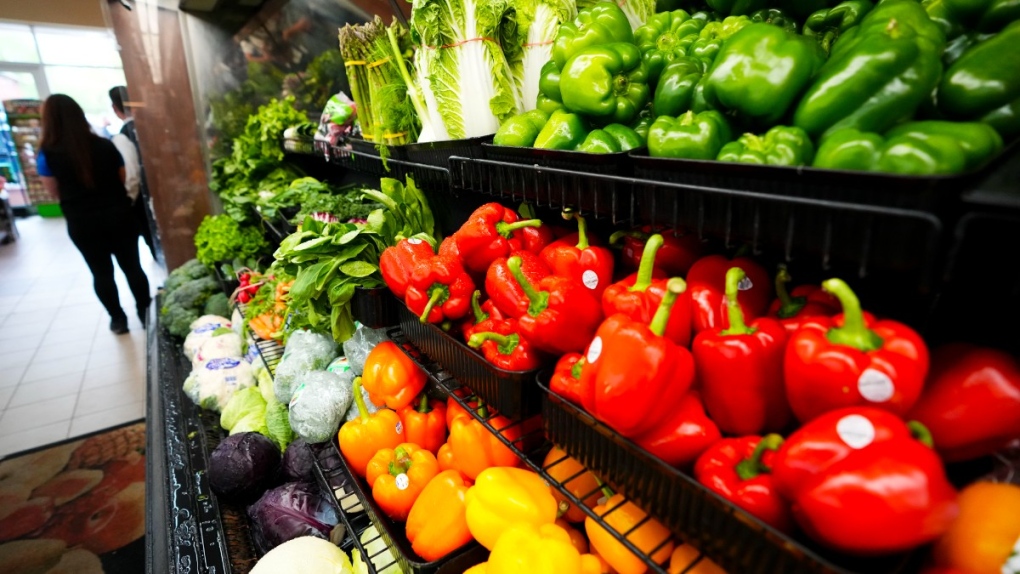Self-Check-out Machines Don't Ask Questions
"Theft is a taboo subject among grocers.""People feel that grocers are profiteering. And if you believe that a retailer is profiteering, then you could argue that the company is stealing, so why not steal back?"Sylvain Charlebois, professor, food industry expert, Dalhousie University, Halifax"It is not that consumers are good or bad. It is that sometimes the opportunity makes the crime far more common.""The situation can make that last-minute choice more likely.""People steal to get back at retailers."June Cotte, marketing professor, University of Western Ontario, Ivey School of Business, London, Ontario"I feel no remorse. I don't steal frivolous things.""I don't steal beer -- though some days I feel like I need it -- I just want to be able to feed my children some good, healthy food.""I was like, 'Screw it, I don't care, I am taking the cheese', and that was the first thing I took.""This is not about thrill-seeking. Everything has gone up in price."Sam (assumed name), father of two, fully employed, home-owner
 |
| Produce vegetables are displayed for sale at a grocery store. THE CANADIAN PRESS/Sean Kilpatrick |
The results of a recent survey conducted by Professor Charlebois and his colleagues at the Agri-Food Analytics Lab at Dalhousie University was that 30 percent of food shoppers believe grocers have been price-gouging consumers, the "main reason" for high prices. Food theft data is difficult to acquire, but Dr. Charlebois estimates that each grocery store loses between $2,000 and $5,000 every week to theft.
That doesn't sound like much, but in the aggregate it adds up; annual losses due to theft potentially ringing in up to $534 million (at Loblaw), $415 million (Empire), and $250 million (Metro); Canada's largest/leading food retailers. Major grocers' cumulative loss from theft is conceivably about $120 million annually, likely an underestimate.No verification nor loss estimates are available directly from the brand grocers, and franchise owners are reluctant to give figures for fear of hearing back from head office.
When contacted for comment, parent company executives simply politely decline comment. For them the subject does not exist, at least externally. Logic has it that they are unwilling to register theft as being a "huge problem" since it would represent a public relations faux pas to speak of shoplifting, casting aspersions as it were, on their loyal shopper-base, the customers who come out weekly for their grocery shopping.
In admitting that it is an issue, publicly, there is the risk of alienating their honest and loyal customers, made to feel it is they who are suspected of being petty crooks, defrauding the grocers who trust them enough to make shopping more efficient by employing self-checkout aisles. And surprise, it is those self-checkout aisles where most of the theft is taking place. Where it is not a human cashier, but a machine that lends itself to such opportunities.
Some grocers are attempting to employ techniques meant to discourage theft; permitting only baskets, not carts at self-checkouts. No more temptation over wine and beer, taken completely off the shelves. In some stores shoppers are asked to empty their carts onto checkout stands. And elsewhere security guards are employed to stand watch or to ask for receipts at exit.
There is irony in the fact that the weak-theft-link is the automated self-checkout. Devices which substantially took the place of human cashiers. Increasing the bottom line for the grocers in fewer cashiers to employ, but at the same time, giving opportunity to the larcenous among shoppers who fail to check out their purchases properly withholding some and passing others through. Meat is the big one; setting it aside as a 'freebie', the shopper forgot to scan.
On TikTok, popular with the young, users post content promoting theft calling it "borrowing" and "racking" in reference to shoplifting from big corporations, rather than small mom-and-pop stores. That old 'honour among thieves' rubric reborn. Tutorials on stealth non-purchase can be found on the social platflorm, as well.
:format(webp)/https://www.thestar.com/content/dam/thestar/business/2023/01/28/confessions-of-a-shoplifter-as-food-costs-soar-and-self-checkouts-multiply-more-people-are-stealing-and-theyre-not-sorry/shoplifing.jpg)
Labels: Cost of Living, Food Prices, Food Theft, Inflation, Supermarket Self-Checkouts

0 Comments:
Post a Comment
<< Home